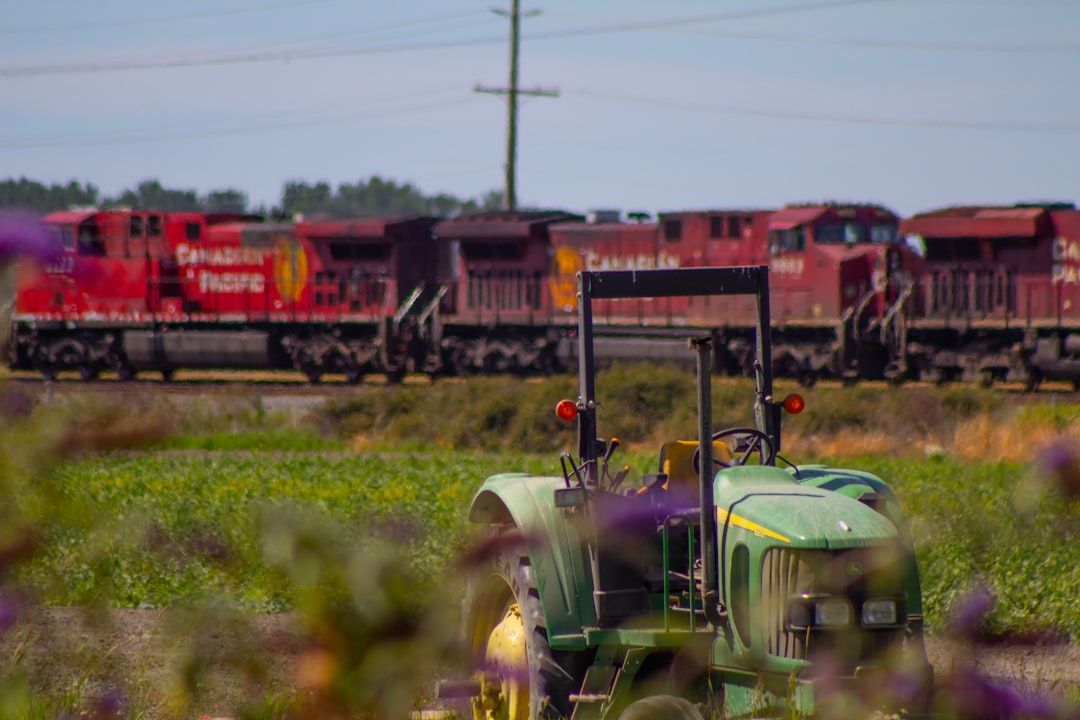(COLORADO) On Colorado’s Western Slope, farmworkers say they are living with fear unlike anything they’ve felt in decades, as President Trump’s promises to arrest and deport undocumented immigrants ripple through orchards and vegetable fields. Men and women who once drove to work without much thought now scan rearview mirrors for law enforcement, swap stories about Immigration and Customs Enforcement, and talk in hushed voices about backup plans if a parent is suddenly detained.
Community advocates describe workers slipping into “survival mode,” cutting back on travel, avoiding public spaces, and bracing for the possibility that any encounter with an officer could end the life they’ve built in rural Colorado.

Increasing anxiety after national incidents
The shift has deepened over recent months, workers and advocates say, as news reports and social media videos show ICE agents chasing laborers through fields in California or surrounding apartment complexes before dawn. People who once believed a clean record, steady work history, and strong ties to their churches and schools would shield them now say they understand that legal status alone decides whether they can stay.
That change has left even longtime legal residents on edge because they often share homes, cars, and workplaces with relatives and friends who crossed the border without papers years ago.
Erosion of trust in local law enforcement
The fragile trust between immigrant communities and local law enforcement was shaken further by a case that began on a stretch of Interstate 70 in Mesa County. A sheriff’s deputy stopped a Latina nursing student from Salt Lake City who was driving through western Colorado and, after learning she was in the country without legal status, contacted federal immigration agents.
The Colorado Attorney General later found that the deputy had violated state law by acting as an arm of federal immigration enforcement. The deputy resigned, lawsuits between the state and the county followed, and the story spread quickly through worker housing and church basements.
For farmworkers who had spent years avoiding trouble, the message was chilling: even a routine traffic stop on the way to the grocery store or a medical appointment might draw the attention of immigration authorities.
Precautionary measures families are taking
Parents began drawing up informal custody plans for their children, sharing phone numbers of trusted neighbors, and warning teenagers about what to say if officers appeared at the door.
Some specific practices described by advocates include:
- Sending U.S.-born children to buy groceries or pay utility bills so adults who look foreign, or speak with accents, can stay out of public view.
- Keeping car trunks packed with clothing and personal documents in case of a sudden need to leave town.
- Quitting second jobs or refusing overtime when it would require driving through checkpoints at night.
- Drawing up informal custody arrangements and sharing contact lists of trusted neighbors.
These changes often mean trading income and community participation for a little more sense of safety in a region where seasonal wages are already low.
Vulnerability to scams and fraudulent legal help
The new climate has made undocumented immigrants especially vulnerable to scams. Many workers from Mexico, Central America, and South America say they are desperate for any chance to fix their status but struggle with thick paperwork and legal language in English.
That desperation has drawn some to notaries and poorly trained attorneys who charge thousands of dollars for promises of work permits or green cards that never come. Workers trade whispered warnings about friends who emptied savings accounts to pay for fake legal help, yet some still sign contracts because they feel there is no safe future for their families without papers.
Economic context and the H‑2A shift
Colorado’s farm economy depends heavily on this workforce. State data show about 18,000 agricultural workers are covered by unemployment insurance, and estimates suggest one-quarter to nearly one-third lack legal status.
According to analysis by VisaVerge.com, Colorado differs from states like California, where longer growing seasons support year-round jobs that attract larger numbers of unauthorized workers. Instead, many Colorado growers have turned to the federal H‑2A visa system for seasonal labor.
- The number of H‑2A workers in the state has climbed from 246 in 2001 to almost 4,000 in 2023, according to figures cited by advocates and the U.S. Department of Labor.
Table: H‑2A growth in Colorado (selected years)
| Year | H‑2A workers (approx.) |
|---|---|
| 2001 | 246 |
| 2023 | ~4,000 |
Even with that shift toward legal visas, advocates say fear does not respect immigration categories. Mixed-status crews that include H‑2A workers, permanent residents, and people with no papers often share the same bunkhouses and ride the same old buses to distant fields. When rumors spread about an ICE vehicle seen near a highway or a patrol car parked outside a store, everyone feels the tension.
Some legally present workers worry that being swept into a raid could still cost them their jobs or lead to questions they do not feel confident answering in English.
Considering departure and effects on employers
The strain is pushing some people to think about leaving the United States 🇺🇸 altogether. Advocates on the Western Slope say a growing number of workers tell them life has become so tense that they would rather return to family farms in southern Mexico, where relatives still grow avocados and coffee, than stay in a country where a broken taillight or missed stop sign might trigger deportation.
For employers, that possibility raises fresh worries about losing experienced crews in the middle of a short growing season, when every hand is needed to bring in crops before early frosts arrive.
Why uncertainty drives lasting fear
Local organizers say the fear gripping Western Slope farmworkers is tied less to any single raid than to the open-ended nature of the Trump administration’s promises. President Trump has pledged broad crackdowns on undocumented immigrants, but the details of where and when enforcement will happen are vague, leaving communities to imagine the worst.
While Colorado officials point to state laws that limit cooperation with federal immigration agents, the Mesa County traffic-stop case showed those protections can fail in practice.
Until workers feel that errands are safe, advocates expect the region’s fields will remain shadowed by anxiety.
and local law enforcement was shaken further by a case that began on a stretch of Interstate 70 in Mesa County. A sheriff’s deputy stopped a Latina nursing student from Salt Lake City who was driving through western Colorado and, after learning she was in the country without legal status, contacted federal immigration agents.
This Article in a Nutshell
Farmworkers on Colorado’s Western Slope report intensified fear after national ICE activity and local incidents eroded trust in law enforcement. A Mesa County traffic stop that involved federal agents spurred resignations and lawsuits, amplifying anxiety. Families adopt precautionary measures—informal custody plans, altered errands, and reduced travel—often sacrificing income. Scams offering false legal remedies have proliferated. Although H-2A visas in Colorado rose from 246 in 2001 to nearly 4,000 in 2023, mixed-status crews remain exposed, threatening labor availability and regional harvests.













